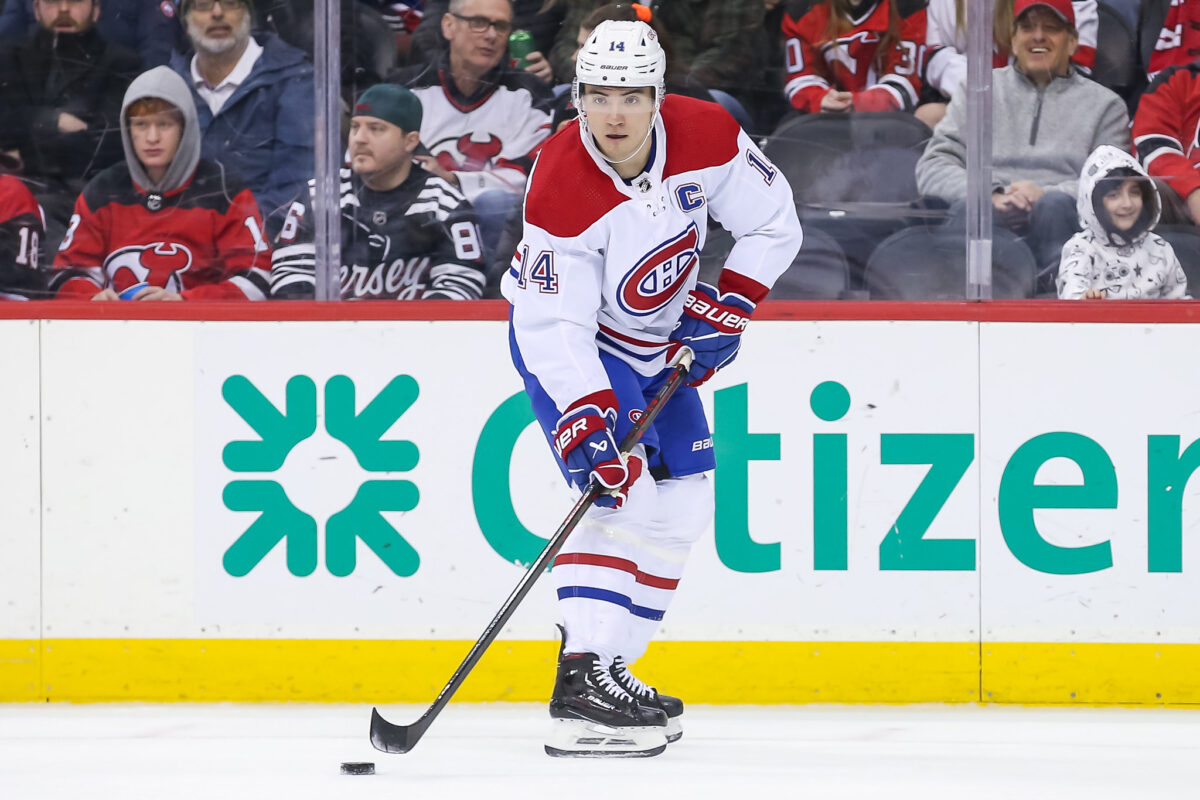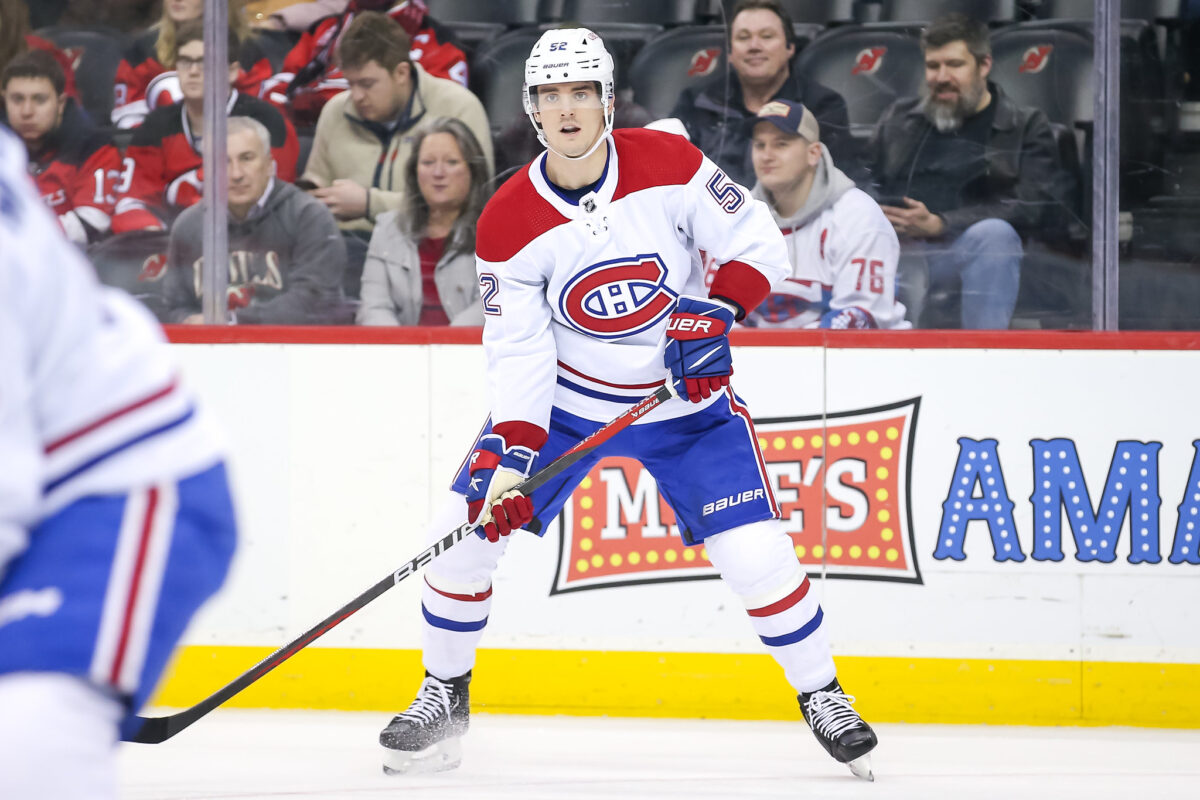There have been many discussions about whether or not the Montreal Canadiens have regressed from last season. However, the answer depends on the metric used to compare the two seasons.
Related: Dear Santa: Montreal Canadiens’ 2023-24 Wish List
There’s no simple yes or no answer. Any answer needs context. The fact that general manager (GM) Kent Hughes is focused on a rebuild and not just the standings is significant. In that sense, no, the Canadiens have not regressed. Here’s why.
Comparing Canadiens Seasons
When asked whether the team has regressed, former Canadiens head coach Michel Therrien answered with an emphatic yes. But is he being fair? Sort of. To see if the team has improved at all, in any category, we will compare the first 29 games of the 2022-23 season to the opening 29 games of this season.
After 29 games, the 2022-23 edition of the Canadiens, led by Nick Suzuki, had a record of 14-13-2 – good for a .517 points percentage (%) – placing them 21st in the NHL with 30 points. They also ranked 25th in goals for (GF) with 82 and 24th in goals against (GA) with 100.

At the same point this season, Montreal has a record of 12-13-4 – good for .483 points percentage (%) – ranked 22nd in the NHL with 28 points. Their special teams have done a role reversal, going from 32nd in the NHL on the power play (PP) with a 14% success rate last season to 23rd this season with 17%. The penalty kill (PK) has seen the opposite, going from 11th in the NHL at 80.2% to 31st with a woeful 72.4% success rate.
Therrien believes the team has regressed for two reasons. The first is their best players are not performing at the levels they are expected to. He blamed players like Cole Caufield and Josh Anderson who aren’t producing enough offence. The second reason is that the team is “not in the playoff picture.”
Canadiens Improvement Rebuttle
This season, Montreal is five points out of the second wild-card spot held by the Carolina Hurricanes. Last season, they were also sitting five points out of the second wild-card berth. So, there is no change there. Suzuki and Caufield are also on pace for roughly the same point totals as last year. In a vacuum, Therrien is right, they aren’t playing as well as hoped, essentially hitting a plateau and not progressing. He’s also correct that the forwards are scoring less than they did last season. But is it a fair comparison? No.
“Don’t use the excuse of injuries with me. I won’t listen. I’d understand the regression if Cole Caufield or Nick Suzuki were hurt, but they are healthy. They just aren’t producing or progressing.”
– Michel Therrien, On va dire les vraies choses: le Canadiens régresse. Journal de Montreal, 13 Dec 2023.
Ignoring injuries ignores context. The Canadiens were relatively healthy at the 29-game mark last season. It was only after that point that the wheels fell off, and they plummeted down the standings while shooting up the man games lost chart. This season, they have faced adversity from the start, losing key players, such as Kirby Dach, almost immediately.

That has had a drastic effect on the production of others. Without Dach, the opposition only needs to focus on defending against Caufield and Suzuki’s line, and they can shut down most of the Habs’ offence. Injuries do matter, but also who is injured matters. No reasonable person can look at the multiple top-six forwards (Alex Newhook and Dach) who are missing and then add the significant lack of production from a snakebitten Josh Anderson and think it’s fair to call this a regression.
Canadiens Are Improving
The fact is, Therrien is correct, the offence from the forward group has dropped. However, he has ignored all context. Also, the Canadiens’ blue line has seen dramatic improvements. Under Hughes, a major focus has been on building up the defence.
Part of modernizing the blue line, as well as the rest of the roster, has been to focus on advanced statistics in making their decisions. Hughes discussed it in his opening press conference as GM. In one sentence he pointed out a major flaw that he corrected in the organization’s hockey operations department by focussing on the “why” of a development issue.
“I don’t want us to be an organization that evaluates a player and says, ‘He’s not performing.’ I want to understand why he isn’t performing.”
– Kent Hughes
Using more than just the “eye test” has seen some improvement for 19-year-old Juraj Slafkovsky. It has also led to the use and evolution of several young defenders, including some who were drafted under Marc Bergevin’s tenure. The blueprint for Montreal’s defence corps has shifted from big, slow defenders to more mobile defenders who are focused on puck movement and transitional play.
This season, the Canadiens blue line has scored 23 of the team’s 79 goals, which is nearly one-third (29%) of their total production and leads the NHL. One of the main reasons for this is the offensive progression of Justin Barron, who is tied for the team lead in goals by a defenseman with five. This is a major step in the right direction, as all successful teams now have defences that can score. But they also need them to improve defensively. Yet, as one of the youngest teams in the NHL, that is expected to come in time.

The injuries to Newhook and Dach certainly don’t help. But it does point out the desperate need for more scoring forwards in the system, as the loss of offensive production from just two players shows a glaring hole that Hughes needs to fill if he hopes to build a Stanley Cup-contending club. But that has long been the case – a need for more top-six centers and elite scoring.
Indeed, Montreal is still a flawed team. It is also true that they are still in the midst of a rebuild with a long way to go. Have they improved over last season? In many ways, they have. They have improved in net, with Samuel Montembeault taking a step forward, and in their defensive mobility and scoring. These two areas have helped stabilize the team this season.
With their deep prospect pool, there is significant promise for the future. However, Hughes still has his work cut out for him. But to say the team has regressed because of a lack of depth upfront or scoring from the forward group is to ignore the context that the team is rebuilding and has made significant progress on that front. In the end, comparing stats from last year without context is one-sided and unreasonable.
